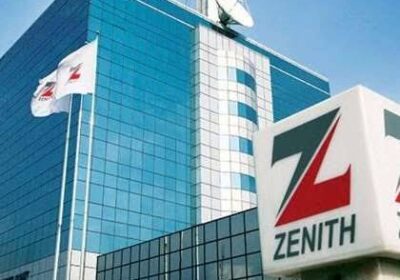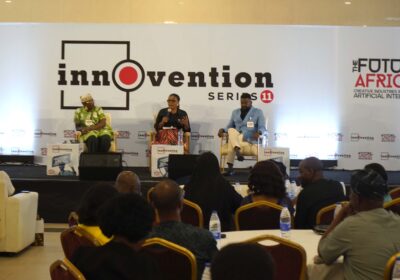How Knowledge is Changing the Nature of Business

The catchphrase in this 21st century is “knowledge rules.” Why not! Since creation, the world has gone through several dispensations. Certain things must happen – whether we like it or not and whether we are ready for it or not. One such thing is the dispensation of knowledge or the knowledge economy as we know it today. The nature of business, as we used to know, is fast changing. Thanks to the knowledge economy. The question, therefore, is whether businesses are aware of it and whether they are ready to embrace these changes, keeping in mind that innovation is the main driver of the knowledge economy. No wonder in 2004, the directorate-general for enterprise, European Commission (ECSC-EC-EAEC Brussels-Luxemburg) in “Innovation Management and the Knowledge-driven Economy” declared; “In the knowledge-driven economy, innovation has become central to achievement in the business world. With this growth in importance, organisations, large and small, have begun to re-evaluate their products, their services, and even their corporate culture in an attempt to maintain their competitiveness in the global markets of today. The more forward-thinking companies have recognized that only through such root and branch reform can they hope to survive in the face of increasing competition.”
Where does organisation’s knowledge reside? Does it reside in the legal entity called company or does it reside in the people that work in the organisation? This is like asking the obvious question. The basic raw material of any organisation is the intellect of the people that work within the organisation. For success, organisations must find ways of mining the intellects or intelligence of their people. Knowledge is fundamental to the survival of organisations as well as to the economic progress of industries and nations. For organisations and nations to survive and thrive in the knowledge economy, they must develop the capacity to create knowledge, and not just consume knowledge.
In organisations, different levels of knowledge reside in the employees that work in those organisations. Some members of the workforce are semi-skilled and some others are highly-skilled. An organisation’s critical knowledge resides in the highly skilled members of its work-force.
In the knowledge economy, machines or computers are doing the work that some people within an organisation would have done. Computers, especially, will replace and or displace some caliber of workers. Some Nigerian workers are already trying to re-invent and re-skill themselves by shifting from jobs that can easily be done by computers in the future. They try to engage in jobs that are oriented toward relationships; knowing that it will take some time before computers venture into establishing and maintaining relationships as humans.
The employment market has been democratised and has, thus, become a seller’s market with employees as the sellers and employers as buyers. Although there is a high demand for highly-skilled members of the workforce who possess the key knowledge; supply is low. This explains the reason why they are highly priced or paid higher salaries than ordinary workers. These are the people head hunters chase about from one organisation to the other. The banking and telecommunication sectors are examples. Banks, especially, go after employees who are not only highly skilled but also manage the accounts of high-net-worth individuals. That is why when a bank loses any member of its workforce; it also loses the accounts of the high-net-worth individuals being managed by them.

The bottom line is that the traditional way of doing business has been fundamentally altered by the knowledge economy. John Sloman, in his volume, corroborated this point of view and noted that the traditional limited liability company was based on five fundamental principles. The first of what could be called “the Sloman’s Principle” states that “individual workers needed the business and the income it provided more than the business needed them”. That is to say that they operated a buyer’s market in the past. Employers could easily replace any worker they lose or fire. The old system made employers more powerful and also the dominant partner in the employer-employee relationship. But in today’s knowledge economy, the reverse is the case. Knowledge has become the key resource of the knowledge economy and so are the workers that possess such key knowledge. The success of any organisation in the knowledge economy hinges on their having key knowledge as well as the workforce that possesses such key knowledge. Sloman believes that the balance of power between the business and the specialist worker in today’s knowledge economy is far more equal.
The second principle is that employees tended to be full-time and depended upon the work as their only source of income. In the knowledge economy, full-time work is not the only option available to workers. Workers will work as free agents. There will be a diversity of employment contracts. Some will continue to work as full-time, some as part-time, while others as consultants. Home working is also on the rise. Workers will opt for employment contracts that will enable them to work as consultants or free agents, having their own preferred flexible schedules and days.
The third principle of a traditional limited liability company is that the company is integrated with a single management structure overseeing all various stages of production. This was believed to be the most efficient way of organizing productive activity; but in the knowledge economy, companies are fast finding out that the global marketplace has become more complex, and they do not have all the skills inside the organisation, and some expert knowledge or skill resides outside. Such expert skills include research and development; some aspects of production; marketing and sales; and adapting their products to specific markets. Outsourcing of some non-core services will enable businesses to become more efficient and deliver more value to customers. Some aspects of the business that can be outsourced include production and human resources. Human resource issues such as hiring, selection, training, and benefits could be outsourced to a third-party firm that has the core competence to perform such jobs. Communication costs, which have become so insignificant today, have enabled businesses to outsource for better efficiency.
The fourth principle states that suppliers, and especially manufacturers, have considerable power over the customer by controlling information about their products or services. Today, power has shifted towards the customer due to easy access to information via the internet.
The fifth principle has to do with technology. Sloman stated that “technology relevant to an industry was often developed within the industry. That has changed too. Today, unlike in the past, technological developments are less specific to industries”. He mentioned further that “knowledge developments are diffuse and cut across industry boundaries. What this means for businesses, in a knowledge-driven economy, is that they must look beyond their industry if they are to develop and grow.” Business dynamics have changed; thanks to the knowledge economy. Tools used in the past to run businesses and national economies have been rendered almost obsolete by the advent of the knowledge economy. Managers need to rethink and retool their business to remain competitive in this dispensation.
Quite a few experts have made their contributions to the importance of knowledge in this knowledge economy. Paul Allaire, Chairman and CEO, of Xerox Corporation, in his 1997 keynote address at the conference on ‘Knowledge in International Corporations’ in Rome, Italy, stated that “the task of leadership is to create the environment for managing knowledge. It requires less emphasis on what we own and more emphasis on what we know. It is not about managing hired hands, it is about setting the context and energizing hired minds. Our challenge is to manage the stage for the human spirit to thrive and create in the emerging knowledge society.” Furthermore, Nick Bontis et al in the European Management Journal, Vol. 17, No. 4 noted that knowledge and information are nowadays the drivers of company life, much more than land, capital, or labor. The increased importance of knowledge does not simply add variables to the production process of goods; it changes substantially the rules of the game. The capacity to manage knowledge-based intellect is a critical skill of this era (Quinn, 1992). The wealth-creating capacity of the enterprise will be based on the knowledge and capabilities of its people (Savage, 1990). Firms that are thriving in the new strategic environment see themselves as learning organizations pursuing the objective of continuous improvement in their knowledge assets (Senge, 1990). Having a good base of knowledge means that a company can, in the future, start leveraging that base to create even more knowledge, thus; increasing its advantages over the competitors (Arthur, 1996).
Sloman again noted that the dynamics of the knowledge economy require quite a fundamental change like business. Organisationally, it needs to be more flexible, helping it to respond to the ever-changing market conditions it faces. Successful companies draw upon their core competencies to achieve market advantage, and thus, ultimately, specialize in what they do best. For other parts of their business, companies must learn to work with others, either through outsourcing specialist tasks or through more formal strategic partnerships. Within this new business model, the key assets are the specialist people in the organisation – is “knowledge workers.”
Editor’s Note: This article was Culled from the book: Survive and Thrive in the Knowledge Economy: Building People, Building Organisations by Dr. Austin Nweze.



Leave a Reply